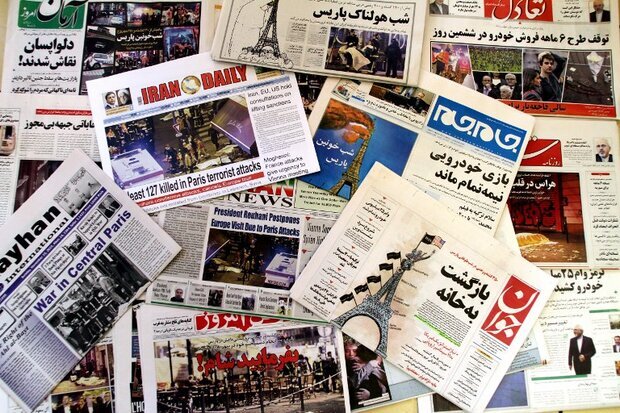Indonesia is island of opportunities

In a note, Vatan-e-Emrooz addressed the president’s visit to Indonesia and relations between the two countries.
It wrote: This country is now progressing based on the Vision 2045 document, which is supposed to bring this Muslim country to the group of advanced countries in the 100th year of its independence and set it in the fifth place in world economy. In such a situation Tehran and Jakarta can serve as a “miracle” of strategic relations in the Islamic world. As founders of the Non-Aligned Movement, they can solidify their political and economic relationship. Since the Islamic revolution in Iran, Tehran has established religious and cultural interactions with Indonesia. Iran has also worked on proximity of religions in the Southeast Asian country. Also, their cooperation in international organizations such as the United Nations, the Non-Aligned Movement, the Organization of Islamic Cooperation and D8 has been friendly. Iran has commercial and economic relations with the Association of South East Asian Nations (ASEAN), which Indonesia is a member, and has always encouraged the expansion of relationship between ECO and ASEAN and actively participated in the joint meetings of the two unions.
Arman-e-Melli: Duties and challenges of the new security chief
In a commentary, Arman-e-Melli discussed the duties and responsibilities of the new secretary of the Supreme National Security Council. It said Admiral Ali Akbar Ahmadian faces a vital test in his post. The council should pay due attention to distribution of power and wealth in the country and make a distinction between private and public sector. In addition, he should pay special attention to resolving problems that Iran is facing globally and regionally. To promote national security, he should also help give priority to the production sector which would help strengthen the social capital. This is not possible except by gathering an enormous group of ??elites to ensure protection of national security and the interests of the people, and also push the society to the rule of law.
Sobh-e-No: Meaningful vote of representatives for Qalibaf
Sobh-e-No wrote about the election of the speaker of the Parliament and said: The most important point in the re-election of Qalibaf in the fourth year of the Islamic Consultative Assembly is that the vote actually shows that the members of the parliament are satisfied with the management of the parliament by Qalibaf, and this contrasts fake news by some radical media outlets and individuals related to this current. Qalibaf has been able to manage the parliament in these years through proper interaction with the representatives. Despite slanders by some media outlet against the speaker of the Parliament in the past few months, which was promoted by radical personalities, we notice that not only this degree of defamation did not have an effect on the reduction of votes for him, but also compared to last year there was a significant increase in votes. As a result, not only the smear campaigns have not worked in these years, but Qalibaf’s competent performance in managing the parliament and focusing on the main issues have raised his credibility among the representatives.
Farhikhtegan: Competition versus participation
In a commentary, Farhikhtegan discussed political competitions in the parliament. It wrote: Intensification of political tensions in the final year of the parliament, will have an electoral agenda rather than a reformative function. Non-technical labeling and will not have any achievements except creating disappointment in the social atmosphere. Such political and factional confrontations may be able to reduce the power of competitors and provide a situation to win seats in the parliament, but they are all against national interests and will reduce voter turnout by creating disappointment.
Resalat: Khorramshahr was stepping stone to confront imposed order
Resalat devoted its editorial to the anniversary of the liberation of Khorramshahr. It wrote: The liberation of Khorramshahr was the starting point of Iran’s movement towards the new world order by confronting an imposed order. The imposed war was only a tool in the hands of the imposed order to return Iran to the previously controllable conditions and stabilize the old order. Iran’s first “no” to this order was the situation that Iran proved that it is going to move against the world’s river and not to lose a single part of its soil. Iran will succeed to completely turn the tide when the fighters of Islam record a permanent frame next to the dome of Al-Aqsa Mosque like the image of the fighters on top of Khorramshahr Mosque.
Leave a Comment